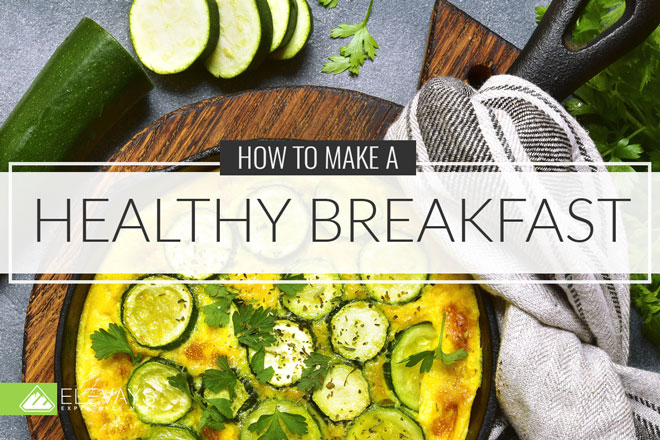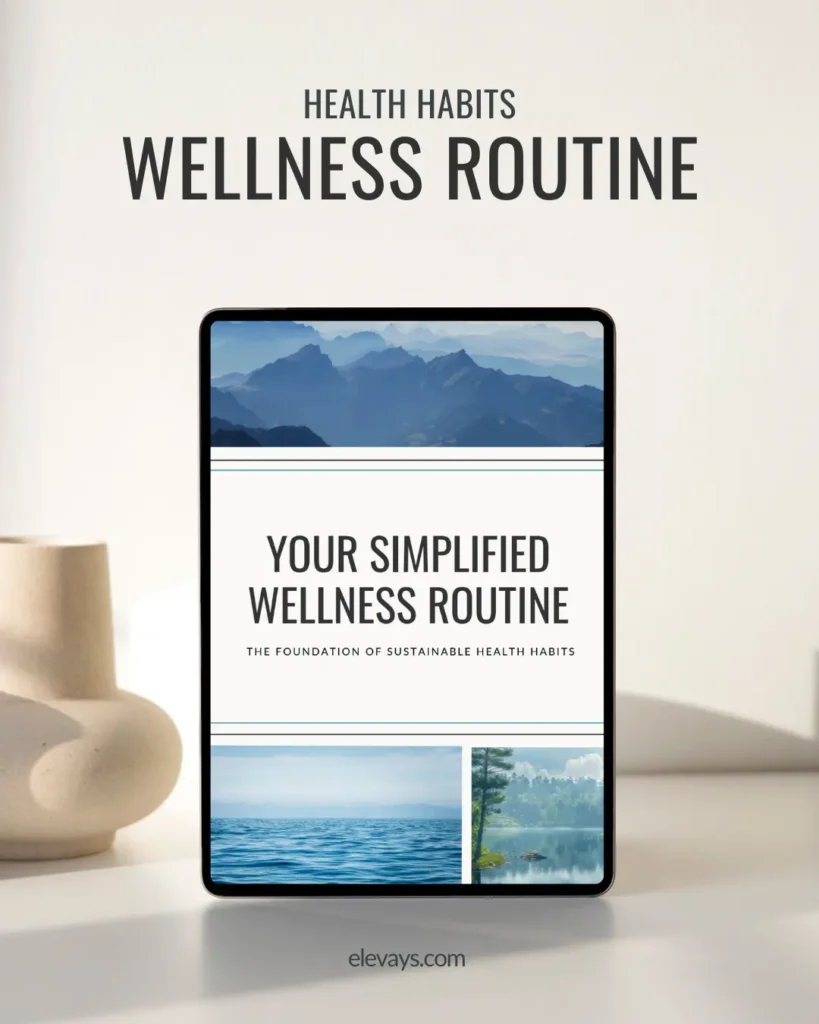There are a lot of conflicting ideas out there about breakfast. Some say it’s the time to eat the most and some say skip it altogether. I always think people should go with their gut on this- as long as it isn’t saying “give me a dozen doughnuts please!”
Quality information can definitely help you feel empowered to make decisions, so today I’m sharing some of the benefits of eating a healthy breakfast as well as some of the healthiest fast food breakfast choices out there (no, I’m not talking about McDonald’s). Setting yourself up for a solid day of energy and healthy decisions could take as little as five minutes!
Why Is Breakfast The Most Important Meal Of The Day?
Long story short, you’re breaking the fast. You’ve been asleep all night and have most likely gone eight hours or more without food or drink. This gives your body the chance to rest and repair, and blood sugar has a chance to stabilize. Most of us are also detoxing when we sleep! And whatever you fill up with the next morning sets the tone for how your body will function throughout the rest of the day.
TRUTH BOMB:
You’re
Already killing it!
If You Were More Consistent With Your Wellness Routine, You’d Be Unstoppable.
Your first priority should always be drinking up to 32 oz of water to really hydrate after going without drinking for so long. Adding a little lemon will kickstart your liver and help carry away any toxins. So hydrating is a given, but what then?
What To Eat And What Not To Eat
Some people who start to shift their lifestyle might try a lighter breakfast like granola. But if you check the ingredients on the back of that healthy looking granola, you will probably find quite a bit of sugar. Anytime you consume a sugary and carbohydrate-heavy meal, especially in the morning, you spike your blood sugar and end up crashing later on. That’s when cravings for more sugary carbs begin and you’ve set yourself for a day of battling with food. Plus, carbs don’t keep you as full as protein does.
This is why some breakfast foods like cereal, pastries, croissants and yes, even granola, aren’t good for you. Basically, the rule for what not to eat is pretty simple: keep sugar and simple carbohydrates at an all-time low when it comes to breakfast.
What you’re really looking for in the morning are nutrient dense foods that will create sustained energy. This way you set up your body so that it has everything it needs without jumping on the roller coaster of sugar highs and lows. The essential components of a healthy breakfast are proteins and fats, with a little added fiber too. Every good breakfast should have these. Fats will get your brain going and your fat burning, while proteins will help keep you satiated. Something like a veggie scramble with avocado or a crust-less quiche would be perfect, and I’ll share some other recipe ideas below!
For those of you who are on the go or like a sweeter breakfast option, protein smoothies are a good choice. Smoothies can be tricky and you don’t want to end up with a bunch of extra sugar from fruit, so I’ll share more later about how to make a great low-sugar, high protein and fat smoothie that will take you less than five minutes.
Why Intermittent Fasting Might Be a Good Idea
Some people don’t wake up feeling super hungry, and that’s okay too! In fact, you can make the most of your night-time fast by extending it a little longer and skipping breakfast. There are some serious health benefits to intermittent fasting, like boosting weight loss, lowering inflammation and stabilizing blood sugar. If you’re curious to know more, we’ve got a whole article you can dive into on the blog.
But when done right, intermittent fasting can be a really positive choice for your health. The easiest way to try it is to eat dinner around 7 p.m. and then not eat the next day until 11 a.m. This means that 16 hours out of 24, you fast. And during this time your body has a chance to do cellular repairs and reset. It also means you’re consuming fewer calories throughout the day and will inevitably be less hungry.
If you’re eating a low-carb or ketogenic diet, a high-fat coffee is an easy way to stave off any hunger pains while fasting. Since these calories are completely in the form of fat they are keto friendly and don’t spike your blood sugar, which means you’re still getting the benefits of fasting! Try adding a scoop or two of collagen or a protein powder. We love the taste of our Vanilla Honey Beauty Collagen Complex powder in just about everything (;
Healthy and Quick Breakfast Recipes With Very Few Ingredients
Superfood Green Protein Smoothie
- 1 cup of coconut milk
- ½ avocado
- ½ cup of spinach leaves
- ½ banana
- 1 scoop vanilla protein powder
- 1 scoop collagen powder
- 1 tsp matcha (optional)
Blend together in a high-speed blender and enjoy! You’ll notice that this smoothie has very little fruit and no added sugar. Half a banana is really all you need to add sweetness and often protein powders have a little stevia in them as well. The secret to the perfect smoothie is to make sure it’s heavy on the fats and proteins and low on sugar. A protein smoothie is the quickest and easiest way to start your day and this is probably Elevays’ favorite healthy breakfast. I’ve shared my guide to the perfect smoothie here if you want to learn more!
Chia Pudding with Berries
- 1 cup of coconut milk or cream
- ¼ cup of chia seeds
- ½ blueberries, raspberries or blackberries (your choice!)
- ½ tsp vanilla extract
This one is easy, just stir everything together and let it sit overnight in the fridge. You can grab it to go in the morning and this high-fat, high-protein meal will give you lasting energy without the crash. Chia seeds are also high in omega-threes and high in fiber, and this quick and healthy vegetarian breakfast recipe goes to show that you don’t need meat to be low-carb friendly.
Sweet Potato “Toast” With Avocado
- 1 sweet potato cut into thin slices
- 1 avocado
- Drizzle of olive oil
- Salt and pepper to taste
- Add an egg for some extra yum!
You can make these “toasts” ahead of time by slicing a sweet potato and baking them at 375 until done. Store them in the fridge and simply pop them into the toaster in the morning. Top with avocado, a little olive oil and some salt and pepper. And there you have it, avocado toast without the gluten and simple carbs in bread.
I hope this has given you some good recipe ideas and maybe helped you discern what constitutes a good, healthy breakfast! What you decide to put you in your body first thing is definitely important, and sometimes it’s better to skip breakfast altogether than to have some sugary cereal.
We’ve shared some other great recipes here if you’re feeling like getting creative in the kitchen and want more ideas. Starting your day off right can be fun and easy and I’m always keeping an eye out for fun new recipes so if you have any please share them below, I’d love to hear from you!
Sources:
- Spritzler, Franziska. “The Ten Worst Foods to Eat in the Morning.” Retrieved from: https://www.healthline.com/nutrition/10-worst-foods-in-the-morning
- Gunnars, Kris. “10 Evidence-Based Health Benefits of Intermittent Fasting.” Retrieved from: https://www.healthline.com/nutrition/10-health-benefits-of-intermittent-fasting





READ the Latest
Health Habits
Health Habits
Longevity
Longevity